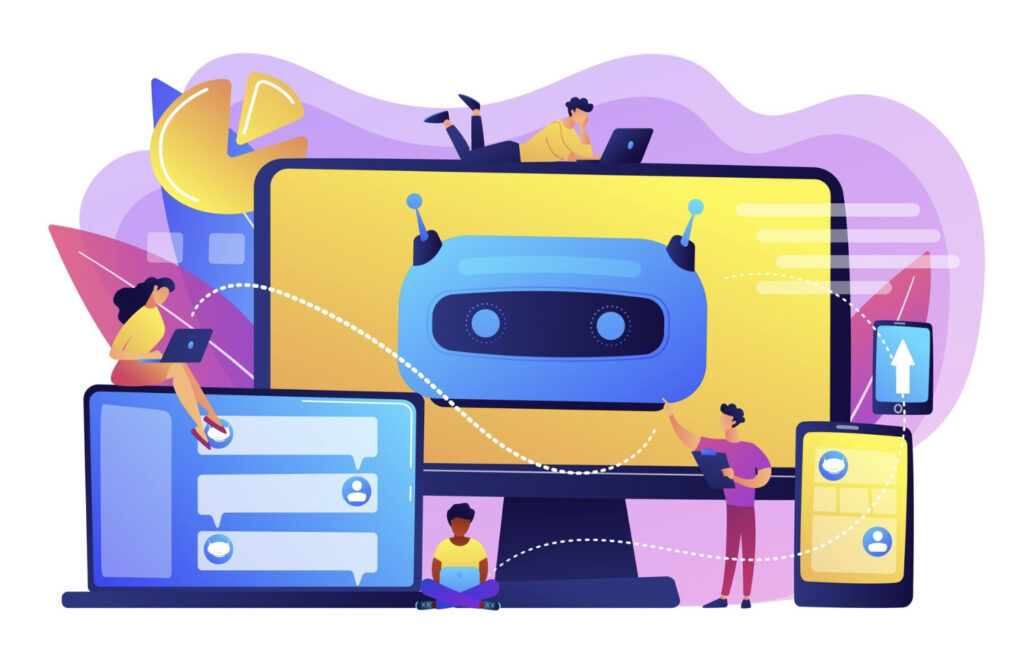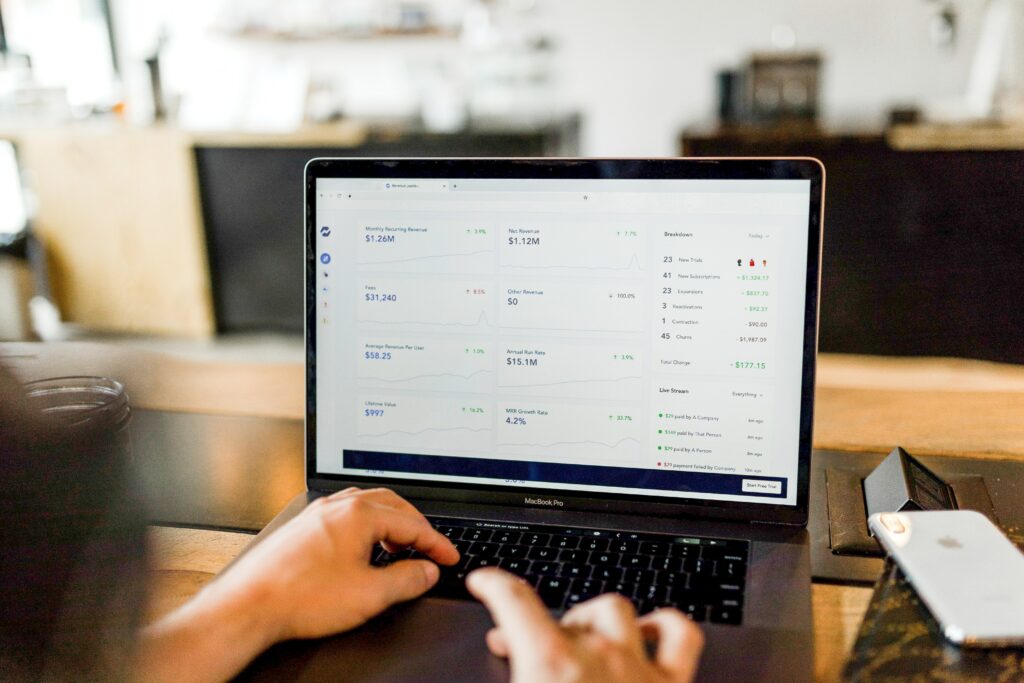Artificial intelligence (AI) is rapidly transforming the landscape of digital marketing, with pay-per-click (PPC) advertising being one of the most affected areas. AI in PPC has evolved from basic automation to advanced, data-driven systems that offer significant advantages for businesses. By automating routine tasks, optimizing campaigns in real time, and providing deeper insights into audience behavior, AI is changing how advertisers approach paid search. In this article, we will explore the impact of AI in PPC, its key benefits, challenges, and what the future holds for this powerful combination.
The Rise of AI in PPC Advertising
The rise of AI in PPC is a direct result of the increasing complexity and competitiveness of digital advertising. With millions of businesses vying for attention, PPC campaigns need to be precise, efficient, and adaptable. AI brings all of this by automating manual tasks and optimizing campaigns at a scale that would be impossible for human marketers alone.
AI’s integration into platforms like Google Ads and Facebook Ads has given marketers access to tools that can manage keywords, bids, and budgets more effectively. These tools utilize machine learning algorithms to analyze user data in real time, making decisions that enhance performance and targeting.
As a result, AI enables a shift from reactive to proactive advertising, where marketers can anticipate trends and adjust strategies before problems arise. This is a game-changer in terms of time saved and efficiency gained, especially for businesses running large-scale campaigns across multiple platforms.
Why AI is Transforming PPC Management
At the heart of this transformation is AI’s ability to process and analyze vast amounts of data quickly. Traditionally, PPC management required manual intervention to adjust bids, tweak targeting, or split-test ads. Now, AI can perform these tasks continuously, learning from every interaction to refine and improve campaigns without the need for constant human input.
This shift doesn’t just make PPC management more efficient — it also makes it smarter. AI systems can detect patterns in user behavior, predict which ads will perform better, and automatically adjust strategies to maximize ROI. This means that PPC campaigns are no longer static but adaptive, evolving as new data comes in.
Key Benefits of PPC Automation
PPC automation powered by AI offers several key benefits that go beyond simply saving time. While the efficiency gains are notable, the real value lies in the enhanced targeting, personalization, and overall campaign performance that automation enables.
Efficiency and Time Savings
One of the most immediate benefits of AI-driven PPC automation is the time it saves marketers. Tasks such as bid management, keyword adjustments, and performance monitoring can all be automated, freeing up marketers to focus on more strategic activities. This is particularly important for businesses running large-scale campaigns, where managing every detail manually would be overwhelming.
With AI in place, these routine tasks are handled with precision and speed, ensuring that campaigns are always optimized based on the latest data. This not only saves time but also reduces the risk of human error, which can often lead to missed opportunities or overspending.
Improved Ad Targeting and Personalization
Another major advantage of AI in PPC is its ability to improve ad targeting and personalization. Machine learning algorithms can analyze vast amounts of user data to identify patterns and behaviors that are difficult for humans to spot. This enables advertisers to create highly targeted campaigns that are more likely to resonate with specific audiences.
For example, AI can use real-time data to determine which demographics are responding best to certain ads, allowing for on-the-fly adjustments. This level of precision ensures that ads are seen by the most relevant audiences, improving conversion rates and reducing wasted ad spend.
How AI Optimizes PPC Campaigns
One of the key reasons AI in PPC is so powerful is its ability to optimize campaigns based on real-time data. This optimization process is continuous, allowing campaigns to adjust and evolve without the need for manual intervention. AI’s optimization capabilities include everything from real-time data analysis to predictive bidding, making it a crucial tool for modern PPC campaigns.
Real-Time Data Analysis
AI’s ability to analyze data in real time is one of its most valuable features in PPC. Traditional campaign management often involved waiting for results and making adjustments after the fact. With AI, data is processed instantly, allowing campaigns to be fine-tuned as they run.
For example, if certain keywords are underperforming, AI can automatically reduce bids or reallocate budget to higher-performing keywords without delay. This real-time responsiveness leads to more efficient campaigns, with fewer missed opportunities and better overall performance.
Predictive Bidding and Budget Management
AI doesn’t just react to data — it can also predict trends and make proactive adjustments. Predictive bidding is a perfect example of this. By analyzing historical data and current performance metrics, AI can forecast which bids will deliver the best ROI and adjust them accordingly. This ensures that businesses are not overspending on clicks but are instead bidding the optimal amount to maximize results.
Similarly, AI can manage budgets more effectively by reallocating resources to the best-performing ads in real time. This dynamic budget management ensures that every dollar is spent efficiently, increasing the overall profitability of PPC campaigns.
Challenges of Implementing AI in PPC
While the benefits of AI in PPC are clear, implementing it effectively can be challenging. For businesses that are new to AI, the technology can seem complex and difficult to integrate into existing PPC strategies. Moreover, while AI can automate many tasks, it’s important to strike the right balance between automation and human oversight to achieve the best results.
Overcoming Common Obstacles
One of the primary challenges in implementing AI for PPC is selecting the right tools and platforms. Not all AI solutions are created equal, and businesses need to ensure that the tools they choose align with their specific goals. Another obstacle is the learning curve associated with AI. Teams need time to understand how to leverage the technology and adapt their workflows to incorporate AI-driven automation effectively.
Additionally, AI systems are only as good as the data they’re fed. Poor-quality data can lead to inaccurate predictions and suboptimal results, so businesses need to ensure that they have robust data collection and management processes in place.
Balancing Automation with Human Oversight
While AI can handle much of the day-to-day management of PPC campaigns, human oversight is still essential for making strategic decisions. Marketers need to continuously review performance data, evaluate creative elements, and adjust campaign goals.
Creative tasks such as ad copywriting and visual design still require human creativity to remain relevant and engaging. By maintaining a balance between automation and human insight, businesses can get the most out of AI-driven PPC strategies.
Conclusion: The Future of AI in PPC
The future of PPC advertising is undeniably tied to AI. As the technology continues to advance, we can expect even more sophisticated automation, enhanced targeting capabilities, and smarter optimization processes. However, businesses must approach AI adoption thoughtfully, ensuring that they choose the right tools and strike a balance between automation and human oversight.
Ultimately, AI in PPC offers a powerful way for businesses to stay competitive in the ever-evolving digital advertising landscape. By embracing this technology, marketers can achieve greater efficiency, improve targeting, and enhance overall campaign performance — setting themselves up for long-term success in the world of paid search.


